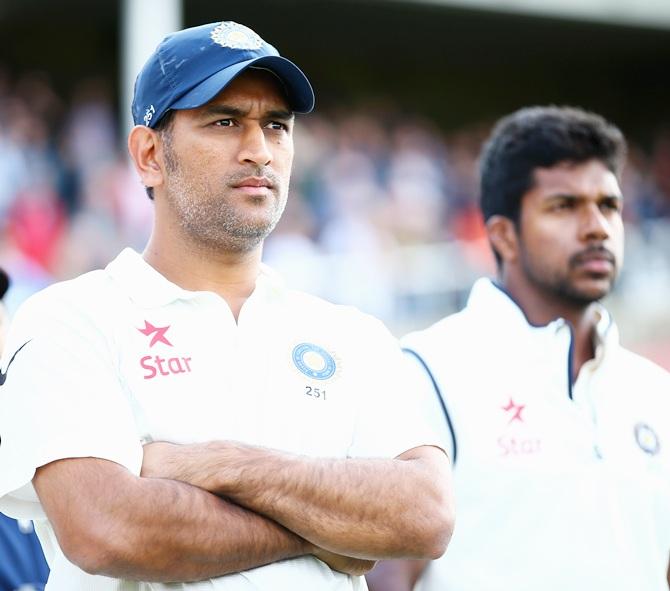
The glaring failure of India’s three middle-order batsmen, who never got even a reasonably decent start from the openers, was the main reason why India kept collapsing repeatedly, says Haresh Pandya, reviewing the team’s 3-1 drubbing in the five-Test series in England.
Just as in life, fortune swings unpredictably in cricket, too.
Mahendra Singh Dhoni and company were on cloud nine after the second Test, having won at the hallowed Lord's, the Mecca of cricket, and taking a 1-0 lead in the series.
But their success, even ecstasy, proved to be as transient as it was dazzling, as the hosts bounced back in style and made them bite the dust in the next three Tests.
The 3-1 victory margin throws enough light on England's superiority and India's abject surrender in the series.
Don't miss our coverage of India's tour to England
...
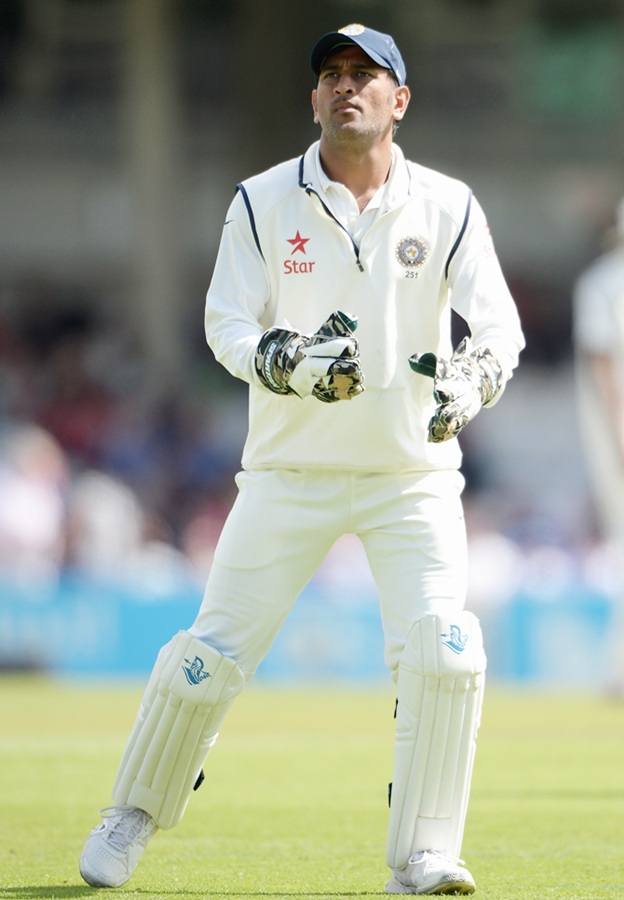
How pathetic was the Indians’ performance could be imagined from the fact that they lost the last two Tests in a shade over two days. Their fall was complete and the torture over when they were sent packing for 94 in their second innings in the fifth Test at The Oval.
In fact, they had threatened to score less than 100 in the first essay, too, but Dhoni and Ishant Sharma saved the team blushes by taking the score from 90 for 9 to 148.
Doubtless, Dhoni failed spectacularly to inspire his players with his captaincy and wicketkeeping. Though he played a couple of stirring innings, he had been increasingly proving unimaginative as a captain and wayward as a stumper. His glove-work was so shoddy it seemed to have affected the slip fielders, who were seen flooring easy catches with a worrying degree of regularity and pouring cold water on the Indian bowlers’ hard work.
But it will be churlish to single out Dhoni for the sorry state of affairs in England because, after all, cricket is a team sport.
...
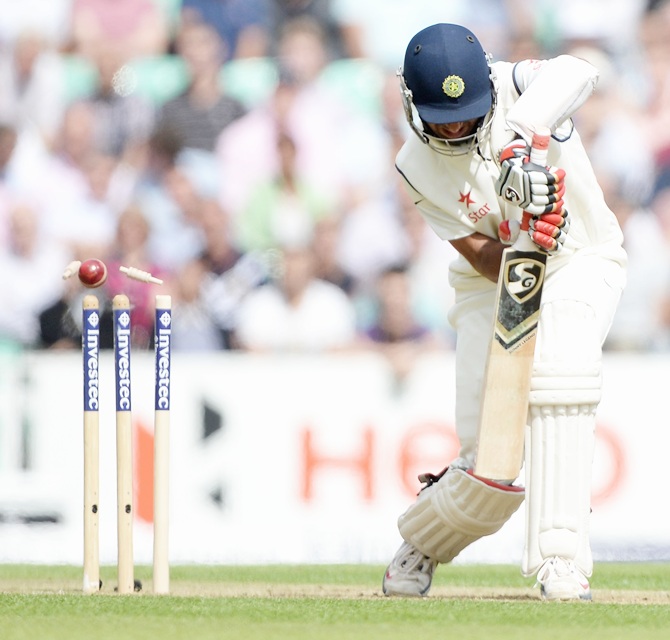
The Indian players continue to pay a heavy price abroad for playing most of their domestic cricket on docile pitches, where bowlers, even highly talented ones, struggle for wickets and batsmen, including journeymen, plunder runs. Indian batsmen are often at sixes and sevens on green and bouncy sporting wickets of Australia, England and New Zealand simply because they know not how to play on such bowling-friendly pitches.
Both Virat Kohli and Cheteshwar Pujara had gone to England with high reputations and plenty of runs in their kitty. Not even their worst critics had imagined that they would be reduced to almost eternal strugglers at the crease by a set of bowlers, spearheaded by Jimmy Anderson and Stuart Broad, who appeared to have mastered both the English wickets and the varied weather conditions.
Though nowhere near being as prolific as in his career before landing in England, Pujara seemed solid in the first two Tests and always looked poised to play his typical mammoth innings. But his batting underwent a strange metamorphosis from the third Test and he did not appear to be even a shadow of his original self. It was irritating to see him struggle for survival at the crease, let alone scoring runs.
...

Full credit must be given to Anderson, Broad and company for never allowing him to settle down. Also to offie Moeen Ali, whose effective bowling and bagful of wickets in the series were a revelation.
If Pujara’s failure was surprising, Kohli’s was absolutely shocking. Anderson, who repeatedly got the flamboyant batsman caught in the slips, clearly had Kohli’s measures. Not once in the series did Kohli appear confident or set to play a major innings. No praise can be too high for the English bowlers for constantly consuming him on a very low score. It is incredible but true that he failed to score a single half century in the series.
...
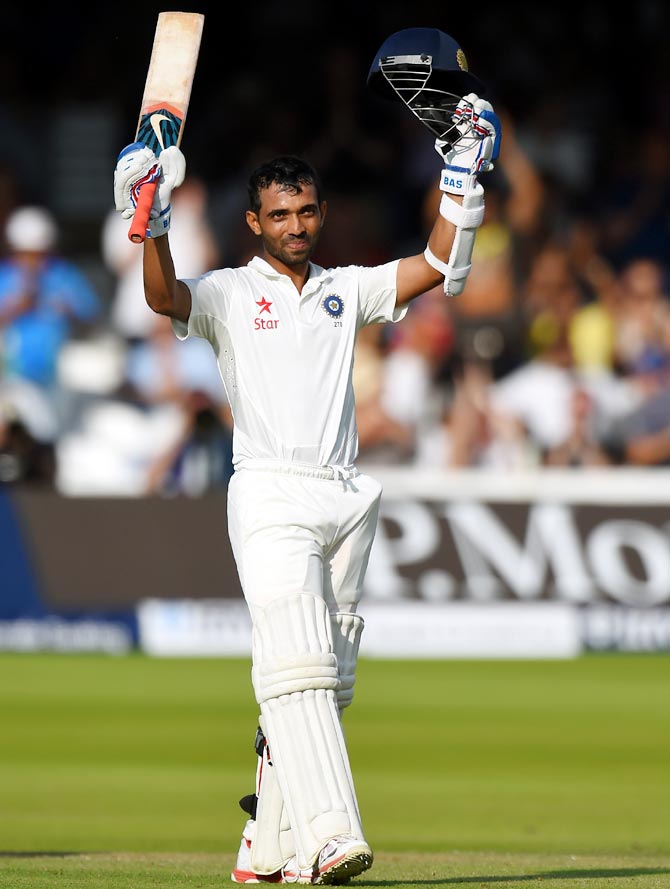
Ajinkya Rahane’s splendid century at Lord’s gave hopes and raised expectations, but as the series progressed, it became obvious that he had flattered only to deceive. He, too, seemed to have been competing with Pujara and Kohli for getting out cheaply. It was a sad commentary on Rahane’s lack of confidence that he was out caught-and-bowled as many as three times.
The glaring failure of India’s three middle-order batsmen, who never got even a reasonably decent start from the openers, was the main reason why India kept collapsing repeatedly.
...
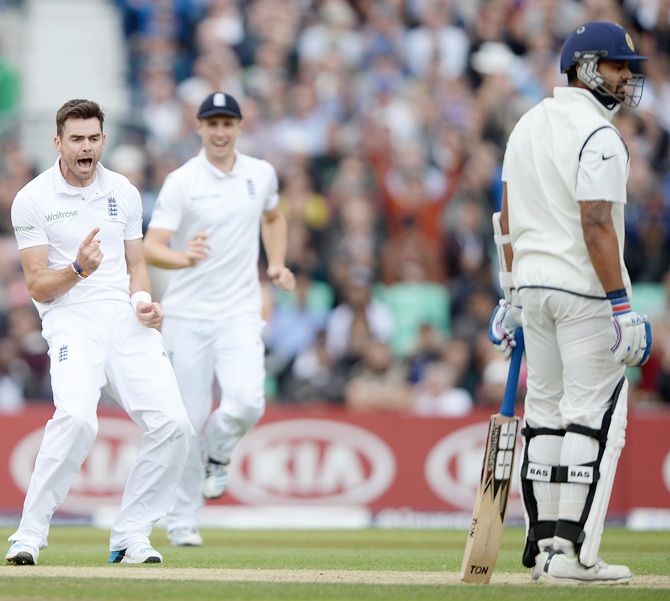
The problem of opening continues to haunt India in Test cricket. Although outstanding in the first two Tests, Murali Vijay batted like a novice in the rest of the series, making the English bowlers’ task a lot easier.
Shikhar Dhawan, who accompanied Vijay in the first three Tests, and Gautam Gambhir, who opened the innings in the last four innings, always became easy prey of England’s new-ball bowlers (Gambhir was foolishly run-out at The Oval).
...
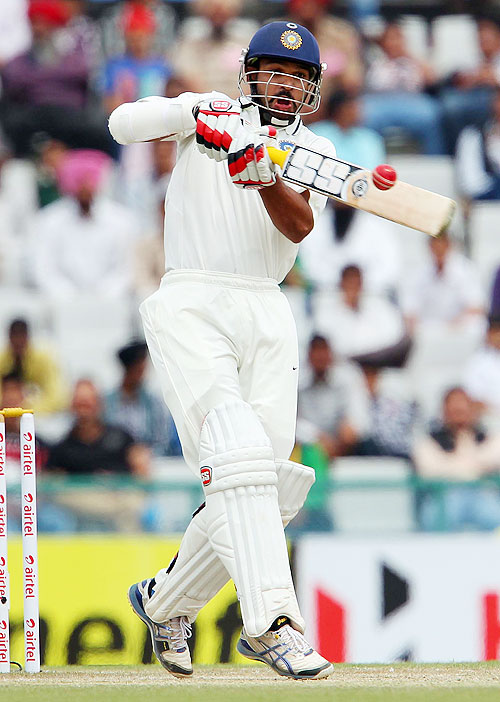
Of all the Indian batsmen, Dhawan must have learnt the vital lesson that it is one thing to score a plethora of runs on home pitches, tailor-made for batting and quite other to succeed on seaming wickets overseas. One wonders if India’s coach, Duncan Fletcher, ever reminded Dhawan that unlike Twenty20 and One-day cricket, a Test match is played over a period of five days.
Lack of a good start, or fall of a quick wicket or two, invariably put a lot of pressure on Pujara, Kohli and Rahane. Though true, this cannot be an excuse for the trio’s failure to stem the rot and lend the innings respectability with their individual as well as collective brilliance. They have played enough Test cricket now and ought to know how to shoulder the responsibility. The fact was they found the England bowlers too hot to handle, which was a bit surprising since it was happening regularly.
...
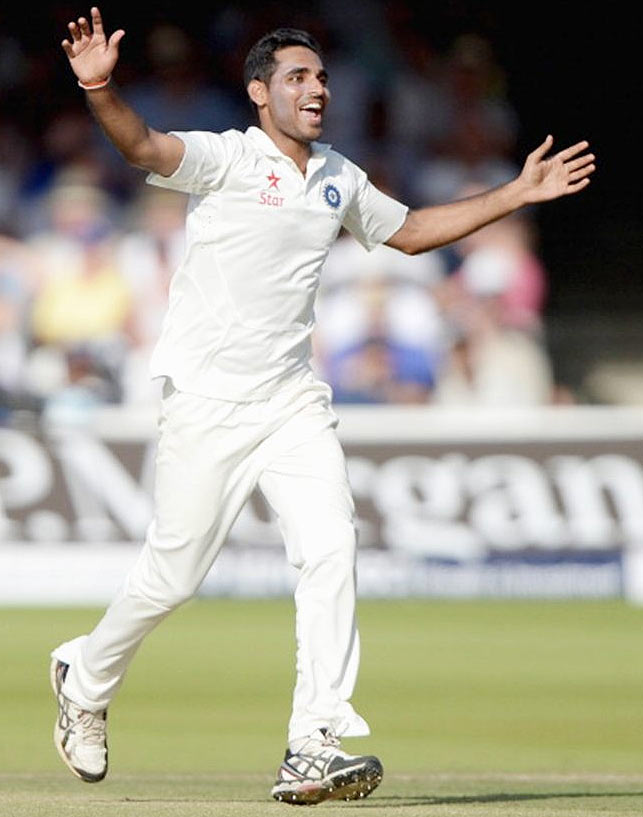
Ironically, it was tail-ender Bhuvneshwar Kumar who batted like a compact, seasoned batsman when the chips were down in the early part of the series. Ravichandran Ashwin, too, excelled with the bat in the fourth Test when the leading batsmen put up yet another flop show.
...
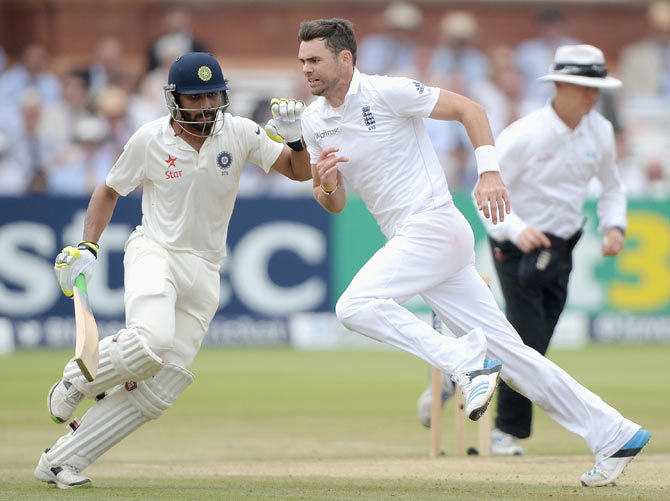
Except at Lord’s, where he scored a fighting but lucky half century, Ravindra Jadeja also let the team down with the bat.
It was also abundantly clear that Jadeja did not merit a place in the playing eleven on the strength of his bowling alone. Despite failing with both bat and ball, he went on to play four Tests, which showed the Indian team’s think-tank in poor light.
...
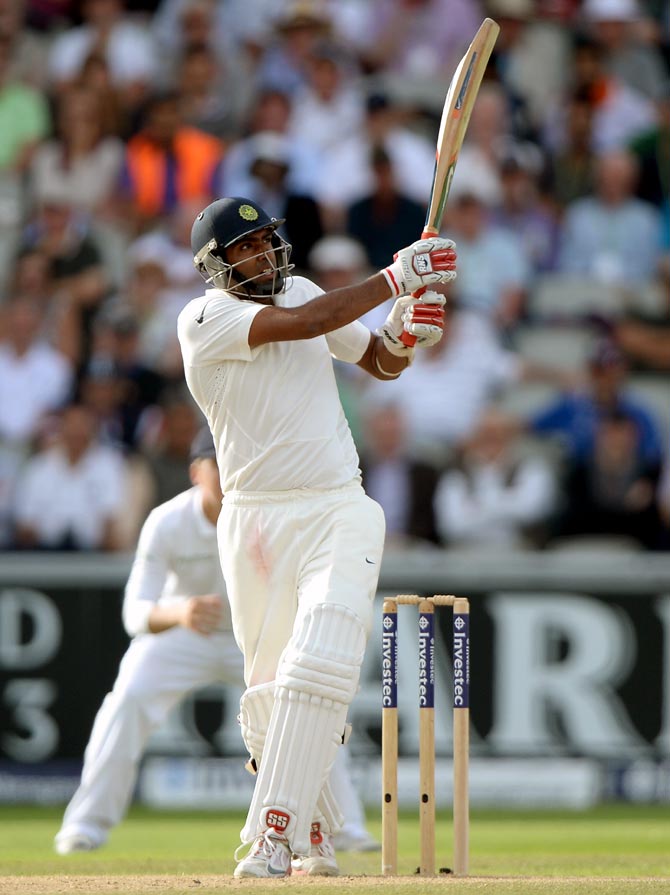
Though played late in the series, Ashwin more or less proved his worth, first with the bat and then with the ball.
Barring Alastair Cook, most England batsmen were in cracking form right from the beginning of the series; so it was some achievement for Bhuvneshwar and Ishant to bowl the way they did against them in the first two Tests.
...
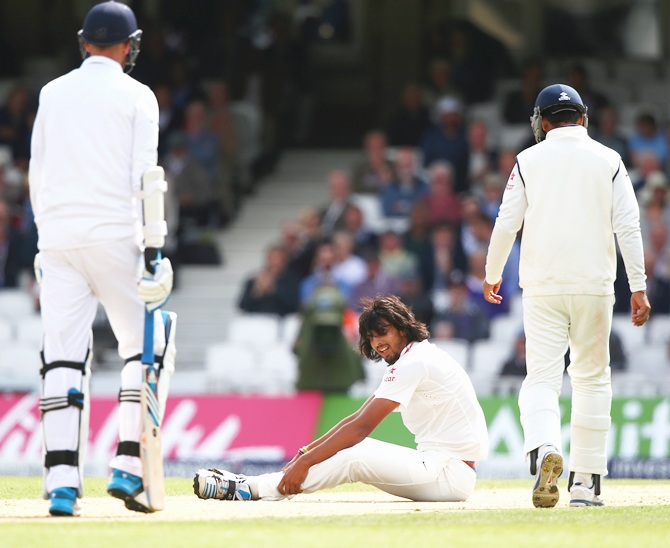
Ishant’s absence from the next two Tests owing to injury was a big blow to India and a boon to England’s batsmen, who scored heavily and gave enough runs to Anderson and Broad to bowl with, a luxury Bhuvneshwar and other Indian bowlers never had almost throughout the series.
Overall, the Indian bowlers, mostly medium-pacers, bowled impressively in the series. It is possible that they would have been more effective and successful if the Indian batsmen had given them enough runs to bowl with.
...
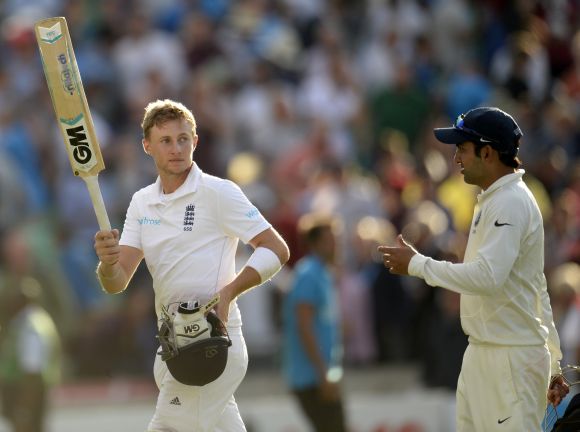
England were undoubtedly the better side and deserved to win the series. Their game-plan was well-thought out. It was as if each player was assigned a specific role and he played it almost to the letter. In sharp contrast to India’s fielders, the Englishmen fielded brilliantly and held their catches.
In fact, one of the features of the series was to see the English slip fielders taking one breath-taking catch after the other. The two English wicketkeepers, Matt Prior in the first two Tests, and Jos Buttler, in the last three, were truly magnificent, not just behind the wicket, but in front of it, too.
...
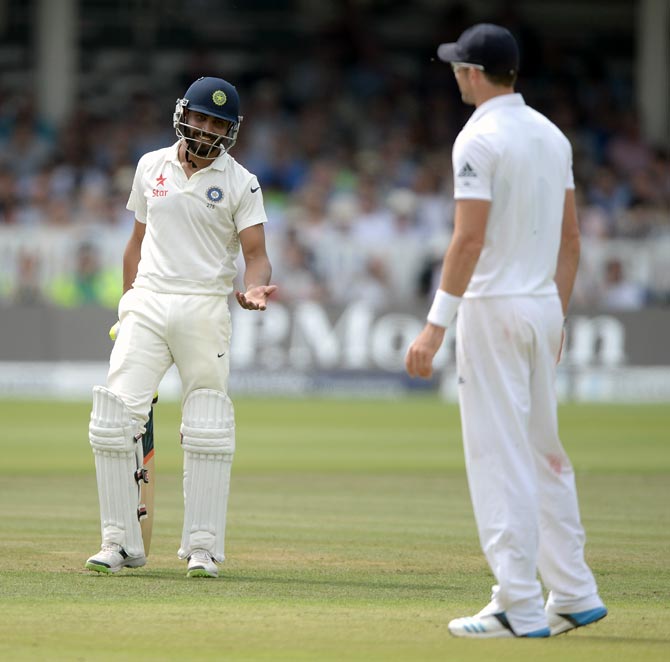
The Anderson-Jadeja controversy went a bit too far from India’s side. It had a strong (read poor) bearing on India’s performance. While India made a big issue of it, England did not give it any importance and concentrated on their mission – to beat India.
In a way, England defeated India not only on the field but off it as well.
Many facts are now emerging in support and defence of the Indian team, though they can never be considered concrete excuses for Dhoni and company’s heavy defeat.
...
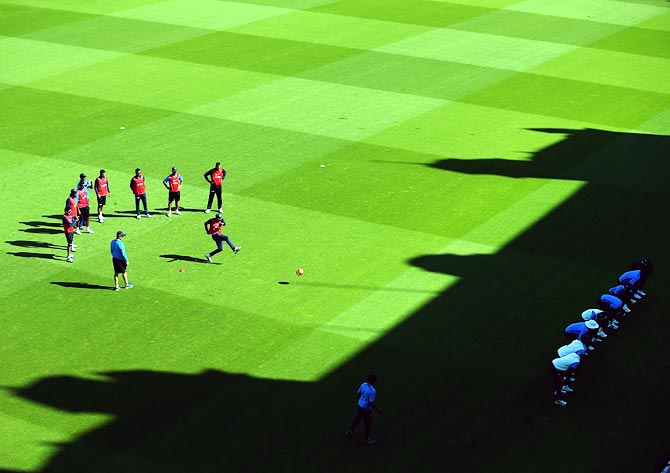
If they had to play a five-Test series overseas, England and Australia would have gone well-prepared and ensured that the itinerary was not too taxing. What was India’s preparation for the exhaustive tour of, and tough series against, England? The seventh edition of Indian Premier League.
Not surprisingly, most Indian players, especially batsmen, were seen treating Tests in England as though they were Twenty20 matches. As if that were not enough, the Indian batsmen’s troubles were compounded by the English medium-pacers, who kept swinging the ball in and out right through the series and thoroughly exposed their suspect technique and temperament and never gave them any respite.
And the Indian team, in spite of playing five Tests, did not have a single first-class match to speak of against an English county in between the series to help the struggling players rectify their errors and regain their touch or form.
...
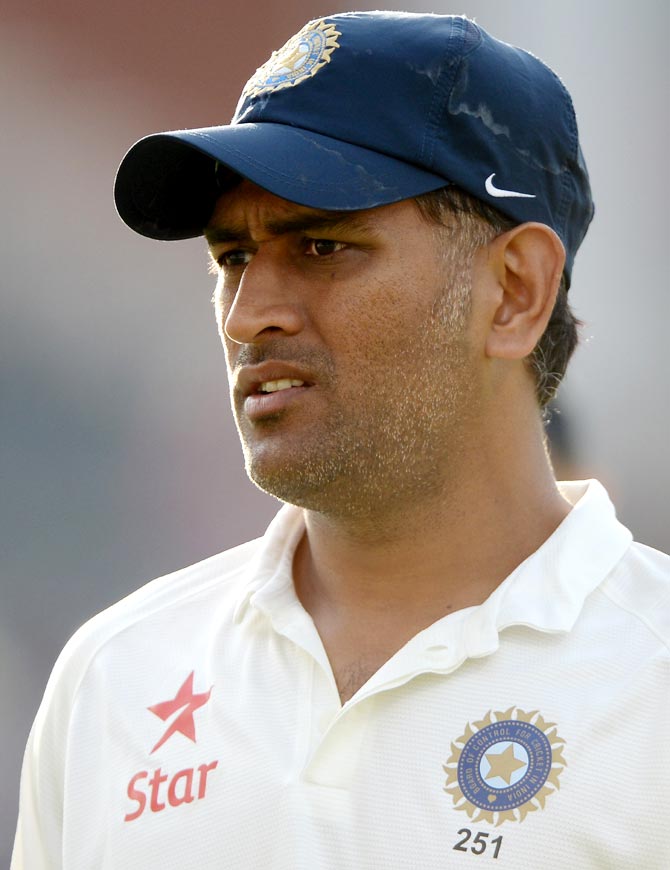
In the past, the Indian team used to play many first-class matches in England even though the actual series contained three, four or five Tests.
But the Board of Control for Cricket in India appears to be least bothered about all this.
The Indian team is scheduled to play four Tests in Australia later this year before the next 50-over World Cup to be played there in early 2015. And how will the team prepare for such an important tour against one of the world’s topmost Test sides?
Well, the BCCI has invited the lowly West Indies to play a series of three Tests before the Indian team sets off Down Under. The level and reputation of the West Indies team is such that it is a fair guess the Indian players will resume plundering runs and taking many wickets, just like what they did when the Caribbeans were in India in 2013 end. The taken-for-granted success against the West Indies may give the Indian batsmen and bowlers a somewhat wrong confidence only for the crafty Kangaroos to trouble and torment them in their land.
...
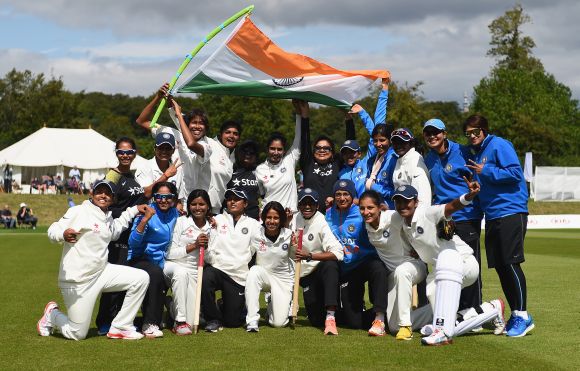
The sole consolation for India’s male cricketers has come from their female counterparts. Even as Cook and company were hammering the last nails in the glorified Team India’s coffin in the final Test at The Oval, Mithali Raj-led Indian women’s team was convincingly beating England in the one-off Test, their first anywhere in the world after seven long years, at Wormsley.
What will be the fallout?
...
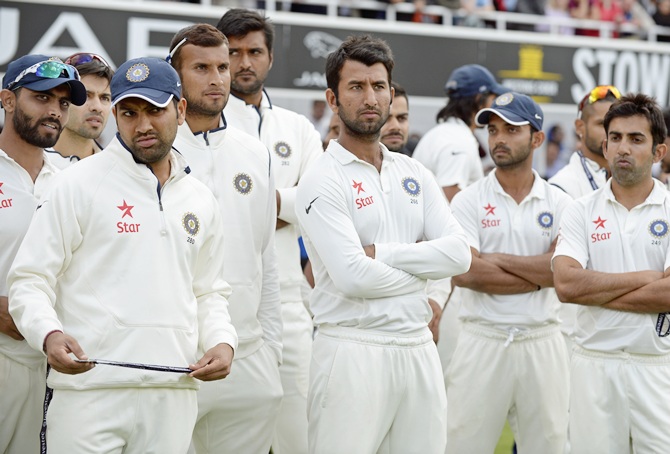
The selectors are not in a position to wield the axe violently. They cannot afford to because of the limited quality players available in Indian cricket. In fact, the entire Indian team is relatively fresh and young after the retirement of many of the country’s greats. Most players will keep coming and going out of the team. Gambhir is the only player likely to be shown the exit door for a long time.
But, considering that it was largely a collective failure that cost India the rubber 3-1, and also the fact that Kohli, tipped by many, including Ian Chappell, to lead the Test team in future, had a horrendous series, Dhoni may just be able to hold on to the captaincy. He may be given a chance to redeem himself against the West Indies.